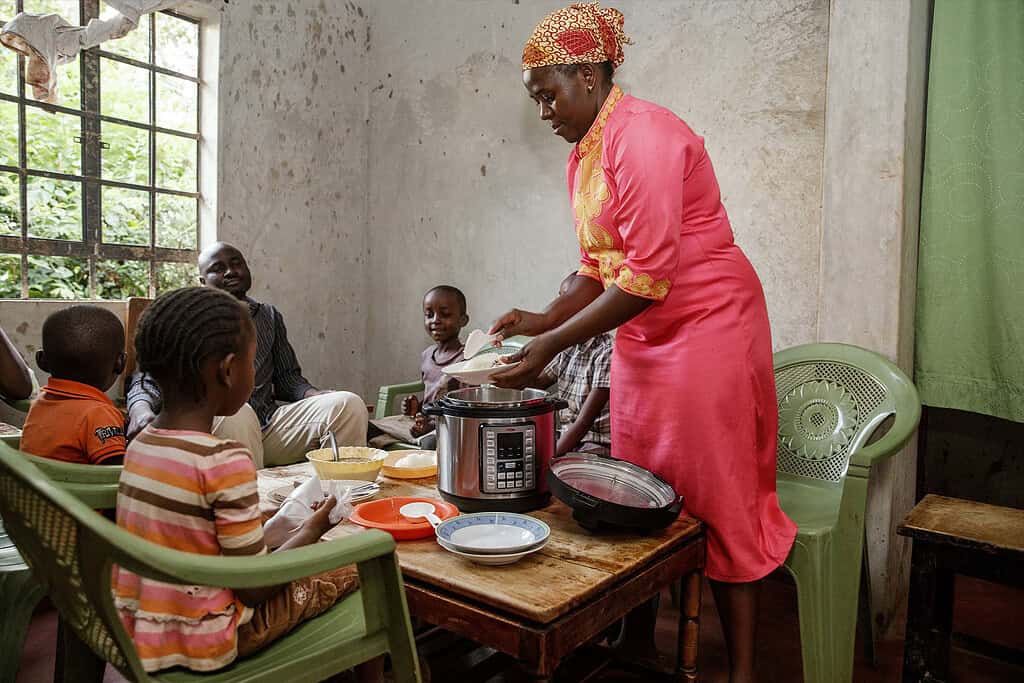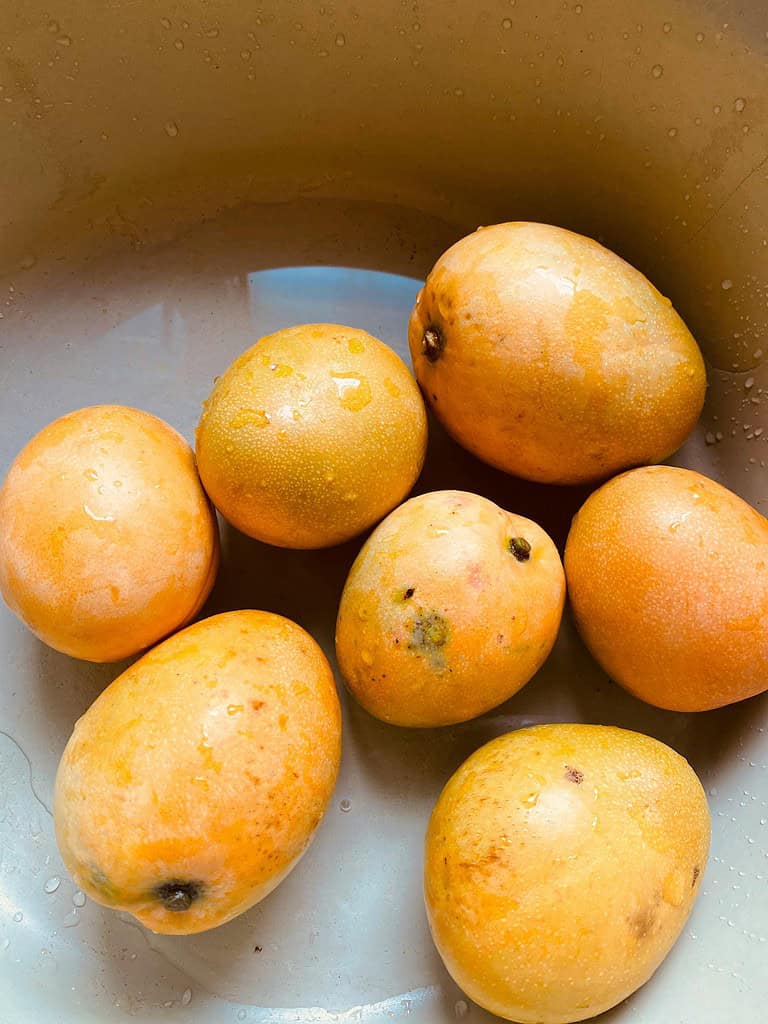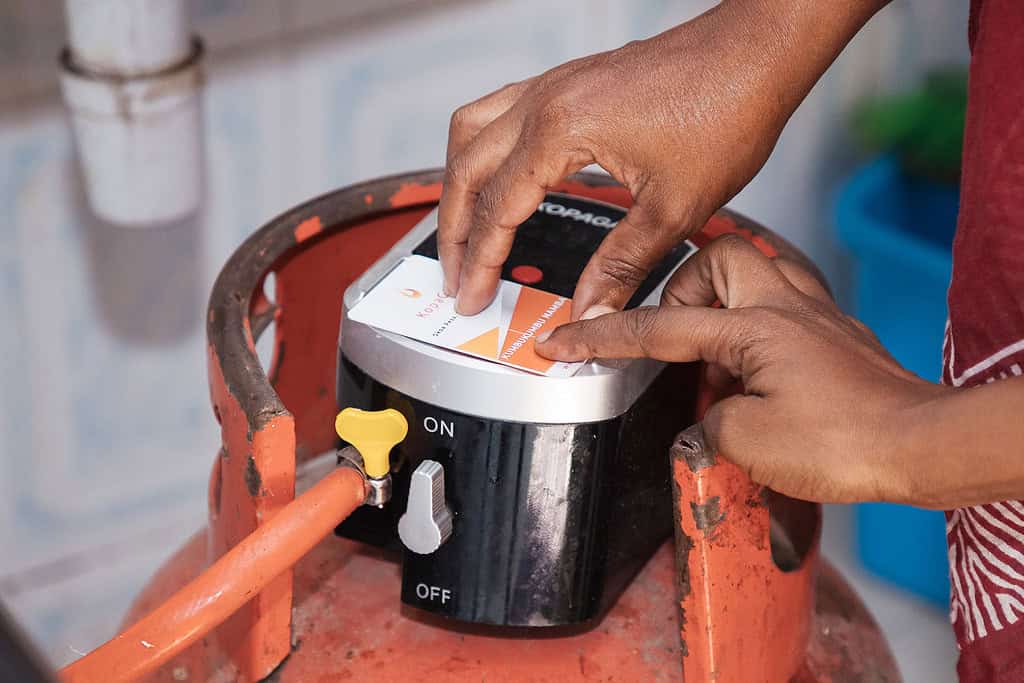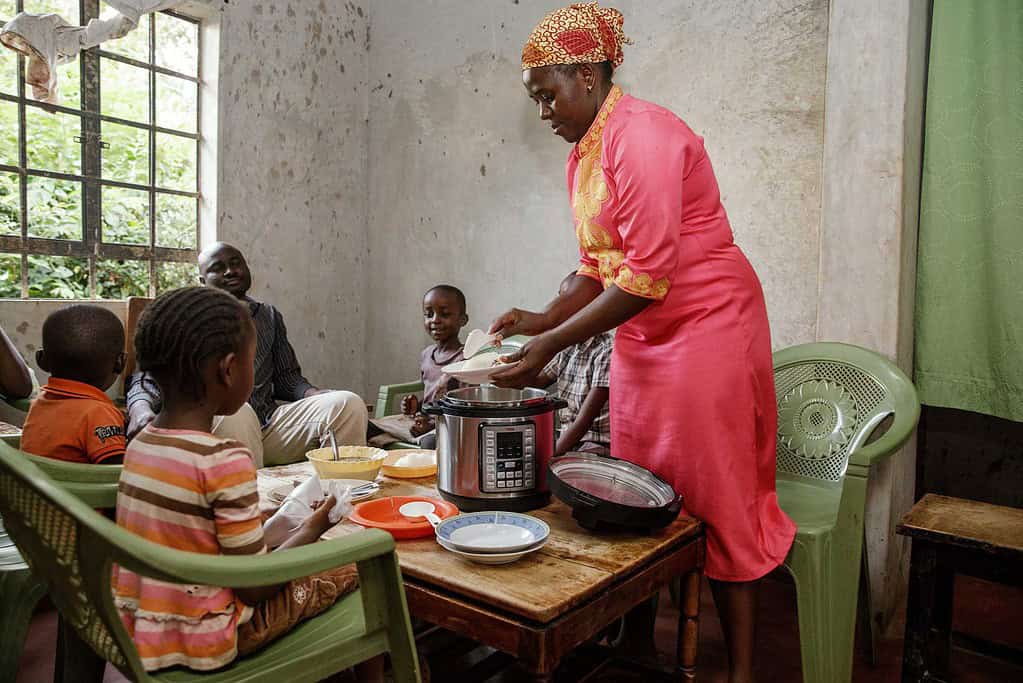Earthshot winner Keep IT Cool solves food loss for fisherfolk and smallholder poultry farmers in East Africa
Acumen announces a new investment in a company whose innovative approach to post-harvest loss improves the lives of fisherfolk and poultry farmers.
- Blog
- Cross sector
- East Africa
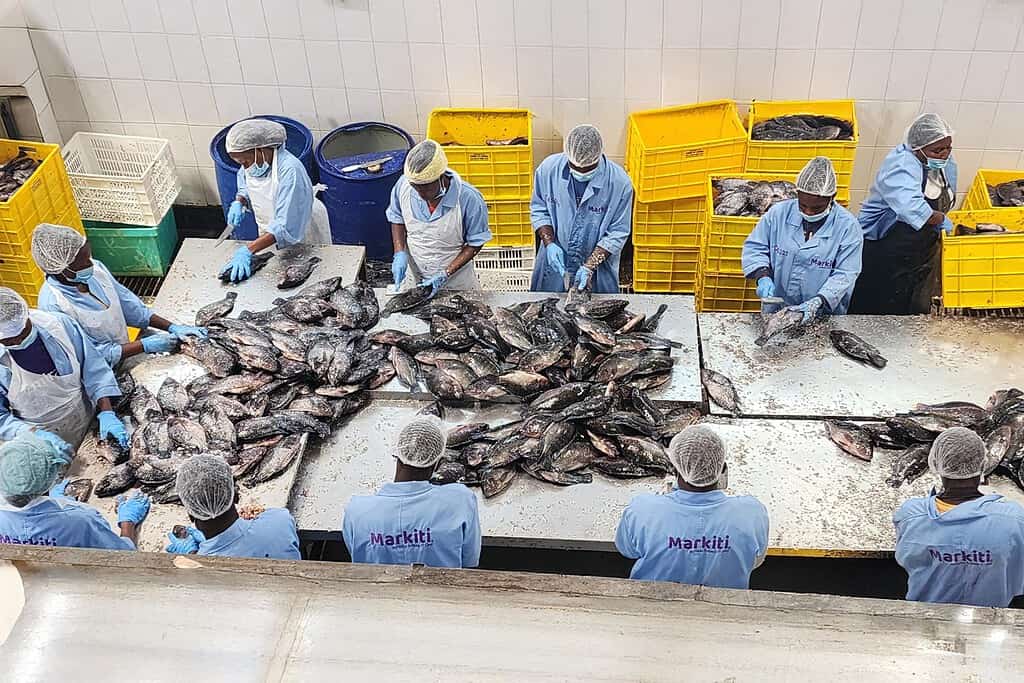
Food waste is a trillion-dollar global problem that affects everything from farmers’ crops to restaurants’ pantries to the mold-prone raspberries in your refrigerator. Nearly a third of all food on Earth goes to waste. In East Africa, that percentage is often higher. Fisherfolk on Lake Victoria in Kenya, for instance, lose 50% of their catch every day due to poor storage, handling, and cold-chain logistics.
Enter Keep IT Cool, a new Acumen investee whose innovative approach to sustainable refrigeration solutions is revolutionizing food preservation in East Africa, starting in the Lake Victoria and Lake Turkana regions. The company is one of five winners of the prestigious 2024 Earthshot Prize.
“Our collaboration with Acumen centers on our mutual commitment to uplifting underserved African communities,” says Francis Nderitu, Keep IT Cool’s co-founder and managing director. “We strive to empower these communities by boosting their productivity, improving market access, and minimizing waste, ultimately helping to increase their incomes.”
When Francis and his co-founder, Abigail Gachigi, first approached the fisherfolk who work on Lake Victoria, they expected them to have a preservation problem. What they learned was that they had a market access problem. Even if they could keep their fish cold, they struggled to consistently connect with buyers, which limited their ability to run a business.
So, rather than sell them refrigerators, Keep IT Cool built them a market enabled by a range of cooling solutions and a B2B app that connects them directly with customers. The app is called Markiti and allows a network of shops, outlets, and restaurants to order fish and chicken straight from the source so that farmers and fisherfolk can gauge demand in real time.
Fisherfolk are organized into Beach Management Units (BMUs) that sit on landing sites and ensure organization of collection and sale of fish. Keep IT Cool provides these BMUs with solar-powered cold storage units and offers refrigerated trucks to transport fish to a network of in-house cold chain aggregation centers. It then delivers fish and chicken to retailers using its fleet of refrigerated and chilled trucks. It provides solar-powered cold storage units to retailers as well.
The result?
Keep IT Cool has increased the incomes of 3,600 fisherfolk by more than 15% and has virtually eliminated post-harvest loss within its network.
From source to scale
Like many of the entrepreneurs that Acumen invests in, Francis grew up surrounded by the problem that he would one day address. Living on a farm in Kenya, he saw first-hand how his family struggled to get fair prices for their produce.
As a young man, he purchased his first laptop with his own money, and it was with that laptop that he would go on to excel in computer technology, receive a masters in social entrepreneurship, and eventually launch Keep IT Cool in 2021 with Abigail as a small, self-funded startup with an outsized ambition: to end food waste for smallholder farmers in East Africa.
Three years later, Keep IT Cool has built a network that comprises 40 supermarkets and more than 2,000 small businesses. It sells eight tons of fish and two tons of poultry per week in Nairobi and surrounding areas. It has expanded to Tanzania and is building a solar-powered cold chain facility that will increase its current capacity by a factor of seven, allowing it to expand into fruits and vegetables and effectively serve over 100,000 fisherfolk and farmers. By improving logistics and reducing waste, Keep IT Cool can significantly expand its outreach, support vulnerable communities, and ultimately create more jobs while improving livelihoods.
Francis and Abigail hope to scale Keep IT Cool’s model across Africa and use it to bring African products to international markets through partnerships with global companies. By 2030, Keep IT Cool aims to improve the lives of 1.6 million people.
Why Acumen invested
Sixty-six percent of Keep IT Cool’s customers live below the poverty line, 77% report an increase in earnings, and 49% are women. These numbers speak for themselves. Furthermore, past Acumen investments in local founders have proven that locally led companies have higher depth of impact, stronger focus on serving female customers, and lower percentage of after-sales service challenges.
This investment also aligns with Acumen’s Forcibly Displaced People (FDP) lens, as presently 27% of Keep IT Cool’s fish off-take base is located in the region of Turkana in northern Kenya. Turkana has a long history of marginalization characterized by extreme poverty, refugee hosting, and climate change vulnerability. UNHCR’s latest estimates indicate Turkana is home to over 295,000 refugees. Keep IT Cool was one of the early entrants to off-take from fish farmers in Turkana, and Acumen believes this investment has the opportunity to ultimately enhance the productivity and climate resilience of FDP and host communities in the Lake Turkana region.
Acumen intends to support Keep IT Cool as it helps more smallholder farmers build sustainable pathways out of poverty. Our investment will help with continued sourcing and expansion within the Turkana region, and through technical assistance we will support Keep IT Cool to include refugee communities in its poultry supply chain.
“In East Africa, post-harvest losses due to lack of adequate cold storage present a critical barrier to food security and economic growth,” says Chris Maranga, who leads Acumen’s work in East Africa. “Keep IT Cool’s solar-powered cold storage technology not only addresses this issue but does so sustainably, empowering fisherfolks and smallholder poultry farmers in some of Kenya’s most marginalized communities. This alignment with our goal to build long-term resilience in local markets made this an easy choice for us.”
Abigail echoes this sentiment: “I am excited about this partnership because it aligns with our mission, giving us an opportunity to scale our initiatives centered around capacitating smallholder fish and poultry farmers to make sustainable income and create more opportunities for them to build climate-resilient communities.”
This is one of Acumen’s investments under its Forcibly Displaced People (FDP) Lens Investing program in East Africa. The program aims to increase access to capital and technical assistance for small and medium sized enterprises operating in displacement affected communities that enable forcibly displaced people and their hosts to build sustainable livelihoods. It is supported by the Conrad N. Hilton Foundation, Swiss Agency for Development and Cooperation and the IKEA Foundation.
